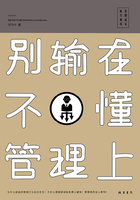He and his friends were thrown into a state of great alarm by this unexpected step. On the one hand, were he to submit and to acknowledge that he had been in error his reputation would be shattered, the Augustinians would feel themselves disgraced, and the University of Wittenberg would lose caste in the estimation of educated Germans. On the other hand, if he adopted the bold policy of refusing to yield to the papal entreaties he was in danger of being denounced publicly as a heretic. In this difficult situation his friends determined to invoke the protection of the Elector Frederick of Saxony, the founder and patron of Wittenberg University. Alarmed by the danger that threatened this institution from the removal or excommunication of one of its most popular professors, and anxious to gain time, Frederick requested the Pope to refer the matter for decision to some German bishop or to a neutral university. In reply to this request Leo X. appointed Cardinal Cajetan, papal legate in Germany, to hold an inquiry (23Aug., 1518). Luther, having armed himself with a safe conduct, went to Augsburg to meet the papal representative, who received him very kindly, and exhorted him to withdraw his statements and submit. Luther endeavoured to induce the cardinal to enter into a discussion on the questions in dispute, but the latter did not allow himself to be drawn into a disputation. Finally, Luther refused to submit, though, at the same time, he declared solemnly that he wished unsaid and unwritten what he had said or written against the Roman Church. A few days later he fled from Augsburg after having drawn up a formal appeal "from the Pope ill-informed to the Pope well-informed," while the cardinal, disappointed by the failure of his efforts, turned to the Elector of Saxony for help against the rebellious monk. But the latter, deceived by the recommendations forwarded on Luther's behalf by his own superior, Staupitz, yielded to the entreaties of Spalatin, the court chaplain, and of the professors of Wittenberg, and declined to take any steps to compel Luther to submit. Fearful, however, lest his patron might not be able to shield him from the censures of Rome, Luther determined to anticipate the expected condemnation by issuing an appeal to a future General Council (28 Nov., 1518).
In the meantime Leo X. who had learned from his representative the result of the Augsburg interviews, issued the Bull, /Cum postquam/ (9Nov., 1518), in which he explained authoritatively the Catholic doctrine on Indulgences, and threatened excommunication against all who refused to accept it. This document was deprived of much of its effect owing to the misrepresentations of Luther and his friends, who announced that it owed its origin to the schemes and intrigues of their Dominican opponents at Rome and in Germany. The occasion called for speedy and decisive action. But the impending imperial election, in which Charles I. of Spain (1516-56) and Francis I. of France (1515-47) were to be rival candidates, made it necessary for the Pope to proceed cautiously, and above all, to do nothing that might antagonise the Elector of Saxony, whose influence would be of the greatest importance in deciding the votes of the electoral college, if, indeed, it did not secure his own election. Had the appointment of a successor to Maximilian I. rested with Leo X. it can hardly be doubted that, in the hope of preserving the balance of power and of securing the freedom of the Holy See, he would have favoured the claims of the Elector against either or both the rival monarchs.[15]
In these circumstances it was decided to send Karl von Miltitz,[16]
who was by birth a Saxon nobleman and at that period a chamberlain at the Papal Court, to present Frederick with the Golden Rose, and to bring about a peaceful settlement of a controversy that had been disturbing the whole Empire. The selection of Miltitz for such a delicate mission was most unfortunate. Proud, obstinate, and ill-informed about the real issues at stake, he was anxious to have the glory of putting an end to the controversy at all costs, and hence he was willing to appear before Luther as a humble suitor for peace rather than as a stern judge. All his severity and reproaches were reserved for Luther's opponents, especially for Tetzel, whom he held primarily responsible for the whole mischief, and towards whom he acted both imprudently and unjustly. The Elector showed himself but little inclined to respond to the advances of Leo X. He consented, however, to arrange an interview between Miltitz and Luther at Altenburg (Jan. 1519). During the course of the interviews that took place between them, Luther pledged himself to remain silent if his opponents were forced to do likewise. He promised, too, that if Miltitz wrote advising the Pope to appoint a German bishop to try the case and to convince him of his error he would be willing to retract his theses, to submit to the Church, and to advise all his supporters to remain loyal to the Holy See. At the same time he prepared a letter for transmission to Rome, in which he addressed the Pope in the most respectful terms, declaring as on oath before God and creatures that it never entered into his mind to attack in any way the authority of the Roman Church or of the Pope, that he confessed willingly that in this Church was vested supreme jurisdiction, and that neither in heaven or on earth was there anything he should put before it except Jesus Christ the Lord of all things.[17] Throughout these proceedings it is clear that Luther meant only to deceive Miltitz and to lull the suspicions of the Roman authorities, until the seed he had planted should have taken root. Only a short time before he had written to a friend, hinting that the Pope was the real Anti-Christ mentioned by St. Paul in the Second Epistle to the Thessalonians, and asserting his ability to prove that he who ruled at the Roman Court was worse than the Turk.[18]















